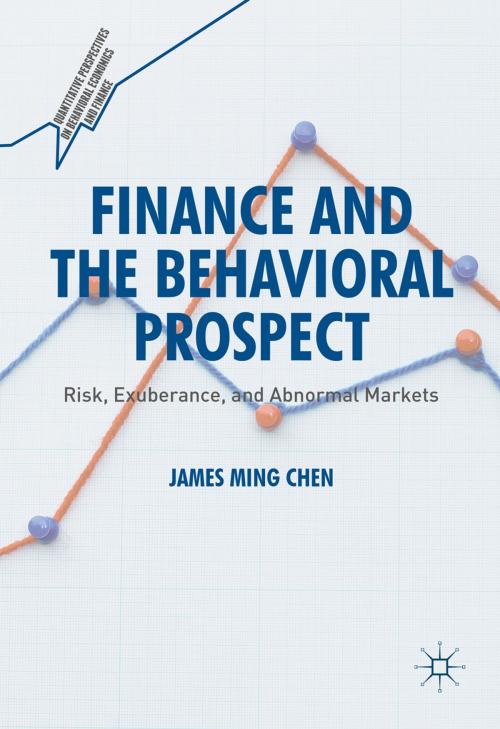Finance and the Behavioral Prospect
Risk, Exuberance, and Abnormal Markets
Business & Finance, Industries & Professions, Insurance, Finance & Investing, Finance| Author: | James Ming Chen | ISBN: | 9783319327112 |
| Publisher: | Springer International Publishing | Publication: | October 1, 2016 |
| Imprint: | Palgrave Macmillan | Language: | English |
| Author: | James Ming Chen |
| ISBN: | 9783319327112 |
| Publisher: | Springer International Publishing |
| Publication: | October 1, 2016 |
| Imprint: | Palgrave Macmillan |
| Language: | English |
This book explains how investor behavior, from mental accounting to the combustible interplay of hope and fear, affects financial economics. The transformation of portfolio theory begins with the identification of anomalies. Gaps in perception and behavioral departures from rationality spur momentum, irrational exuberance, and speculative bubbles. Behavioral accounting undermines the rational premises of mathematical finance. Assets and portfolios are imbued with “affect.” Positive and negative emotions warp investment decisions. Whether hedging against intertemporal changes in their ability to bear risk or climbing a psychological hierarchy of needs, investors arrange their portfolios and financial affairs according to emotions and perceptions. Risk aversion and life-cycle theories of consumption provide possible solutions to the equity premium puzzle, an iconic financial mystery. Prospect theory has questioned the cogency of the efficient capital markets hypothesis. Behavioral portfolio theory arises from a psychological account of security, potential, and aspiration.
This book explains how investor behavior, from mental accounting to the combustible interplay of hope and fear, affects financial economics. The transformation of portfolio theory begins with the identification of anomalies. Gaps in perception and behavioral departures from rationality spur momentum, irrational exuberance, and speculative bubbles. Behavioral accounting undermines the rational premises of mathematical finance. Assets and portfolios are imbued with “affect.” Positive and negative emotions warp investment decisions. Whether hedging against intertemporal changes in their ability to bear risk or climbing a psychological hierarchy of needs, investors arrange their portfolios and financial affairs according to emotions and perceptions. Risk aversion and life-cycle theories of consumption provide possible solutions to the equity premium puzzle, an iconic financial mystery. Prospect theory has questioned the cogency of the efficient capital markets hypothesis. Behavioral portfolio theory arises from a psychological account of security, potential, and aspiration.















